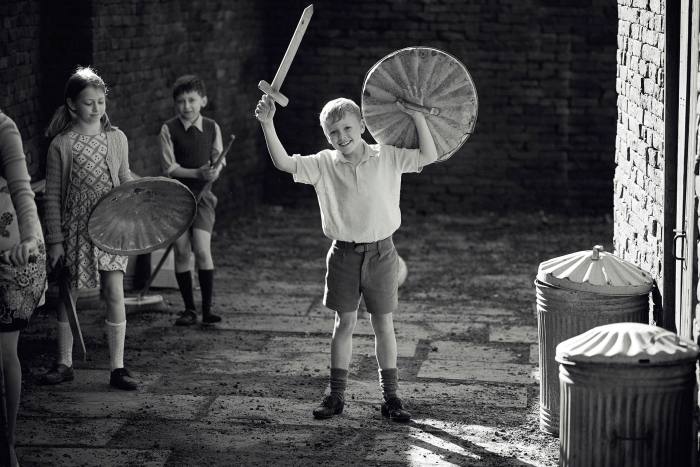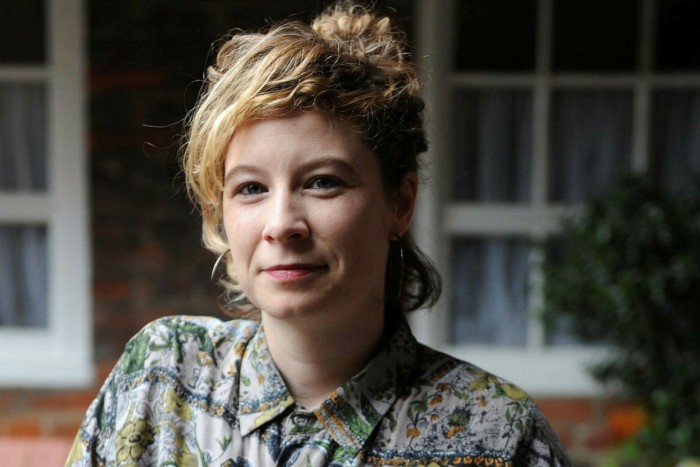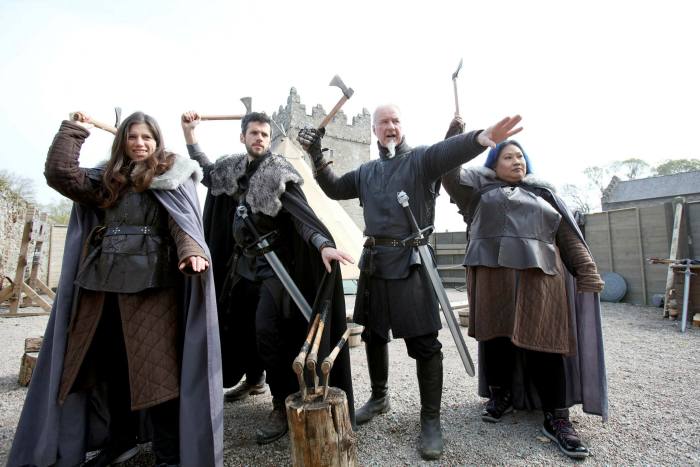For years, Northern Irish writer and film-maker Stacey Gregg never imagined moving back home, let alone securing the backing to shoot the kind of movies that she wanted to make there.
But while she was studying English at Cambridge and then living and working in London, a transformation — spurred by fantasy drama Game of Thrones — was taking place.
Largely filmed in Northern Ireland over a dozen years, the HBO series was to prove to be a game-changer, turning the UK region from artistic backwater to blockbuster destination and helping revamp a brand made toxic by the bombs and bullets from the 30 years of sectarian strife known as the Troubles.
This creative reputation will only be burnished if, as predicted, Sir Kenneth Branagh’s love letter to his hometown, Belfast, which opened the annual Belfast Film Festival last week, is nominated for armfuls of Oscars at next March’s Academy Awards.

Far from just being a Hollywood hinterland, providing services to the big screen productions that jet in from abroad such as Robert Eggers’ The Northman, Netflix drama The School for Good and Evil and Paramount’s Dungeons and Dragons, Northern Ireland’s screen success has given a leg up to local writers, directors and crews.
Increased studio capacity, a lower-cost economy than the rest of the UK, 25 per cent tax breaks for productions, investment in post-production, animation, gaming and digital skills as well as the ties Northern Ireland has built to the film industry all mean “it’s going to grow and grow”, said Colm Murphy, a media expert at Ulster university. “Northern Ireland has built up a global calling card. Success breeds success.”
Indeed, the value generated by creative industries for the Northern Irish economy has grown to £1.2bn gross value added in 2018 from £797m in 2013, according to the latest official data. Game of Thrones poured an estimated £250m into the region.

“I don’t think I could have imagined this pre-Game of Thrones,” said Gregg, whose feature debut as a writer, psychological thriller Here Before, closes the film festival on November 13.
“One of the main things is the expertise — there are great camera teams, a lot of people who came up through Game of Thrones and cut their teeth on that.”
Belfast has three studios, including Titanic Studios, which is housed in what was the paint hall at the shipyard where Harland and Wolff built the ill-fated liner.
Gregg is one of half a dozen Northern Irish film-makers whose work is showing at the festival. Its theme this year is, fittingly, “bringing it all back home”.
Indeed, Richard Williams, chief executive of the state-funded Northern Ireland Screen agency that attracts, promotes and funds productions for cinema, TV, animation and video games, said only 15 per cent of the agency’s proposed £55m investment — covering six out of 996 projects — was earmarked for incoming US projects under its 2018 to 2022 plan.
“We are dependent on Hollywood because those six projects deliver at least half of the overall direct economic value of our screen industry investments,” he acknowledged, adding that he had a pipeline of other big name projects that he could not yet announce.
“But contrary to the notion that the US investment is crowding out local companies, the opposite is the case, with the value of the US investment levering the public investment that allows Northern Ireland Screen to invest in local companies and local projects.”
TV productions such as Derry Girls, Line of Duty, The Fall and Bloodlands have all turned a spotlight on the region. Its stunning scenery, ranging from rugged cliffs and green hills to forests, has provided the backdrop to an array of productions — whether set in Northern Ireland or not. “The whole country becomes one big studio,” said Michele Devlin, director of the Belfast Film Festival, which is now in its 21st year.
This has fuelled a film tourism industry worth £50m in 2018, in which one in six visitors to Northern Ireland comes to see where Game of Thrones was shot.

Dermot Lavery, one of Northern Ireland’s top documentary film-makers and managing director at DoubleBand Films, said the industry was coming of age in a region too long associated with conflict.
“We are moving in the right direction . . . We’re finding the stories we want to tell because we only got to tell one story for so long,” said Lavery, whose gut-wrenching documentary Lost Lives chronicles some of the victims of the Troubles. DoubleBand has an Irish language thriller, Doineann, showing at the film festival.
“For a long time during the Troubles, creativity and talent was really stifled,” said Devlin. This year’s festival has attracted sellout audiences, in part, organisers said, because of the line-up of local films.
Not everyone is so upbeat, however. One leading independent film-maker, who asked not to be named, complained it was still tricky to find financing and questioned the extent to which a true local industry was developing.
“We are prostituting ourselves,” he said. “Hollywood will just move on to the next city or region that can offer the same services as Northern Ireland.”
Gregg acknowledged that funding “is still a problem, but I’m positive about the progress . . . it takes time to skill up”.
Williams praised Northern Ireland’s Studio Ulster, saying it would become a significant research and development hub “available to games, animation and entertainment companies as well as [companies such as] Paramount or Netflix”.
“It’s not an easy industry,” he added. “You have to keep working at it. We just have to make the roots deeper and deeper and deeper.”



















![[Book Review] The Blade Itself (The First Law Trilogy) by Joe Abercrombie](https://bendthekneegot.com/wp-content/uploads/2018/01/1516047103_maxresdefault-218x150.jpg)
















